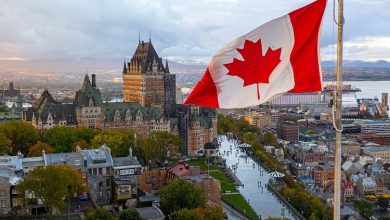Moving to Canada is an exciting adventure, but there are some things you might not know about this friendly and diverse country. Understanding these moving to Canada pros and cons will help you set your mind on the important things before you take the big leap. Whether you’re dreaming of maple syrup, hockey, or breathtaking landscapes, there’s more to consider before making the move. This article will uncover ten surprising pros and cons you should know before your Canada relocation.
Moving to Canada Pros
1. Excellent Healthcare System
If there is any advantage Canada has over other developed countries like the United States, it is its quality healthcare system. The country operates a publicly funded healthcare system known as Medicare, which provides essential medical services to Canadian residents. This means that as a resident, you do not have to pay directly for most medical services, including visits to doctors and hospital stays. The healthcare services in Canada are primarily funded through taxation at the provincial and territorial levels.
This provides a sense of security especially for visitors, knowing that they can access medical services if needed. However, it’s important to note that visitors may need to have travel insurance to cover certain medical expenses not included in the public healthcare system, such as ambulance services, prescription medications, and non-urgent medical procedures.
Also, because healthcare services are publicly funded, more people tend to go to the hospital, leading to longer waiting times. Hence, this is one moving to Canada pros and cons, but the benefits outweigh the challenges.
2. You’ll Learn Culture Appreciation
Over the years, Canada has welcomed people from different parts of the world into the country. This has resulted in a vibrant multicultural society. The cultural mix in Canada enriches the overall experience, offering a unique blend of cultural, social, and culinary opportunities.
3. There is Enough Job to Go Round
Some argue that this no longer holds true as the job market has become saturated and competitive. However, the Canadian job market is diverse and dynamic, offering opportunities in various industries and sectors. While some sectors may be saturated, there are still opportunities in others. Moreover, the country has a stable and developed economy, which contributes to a generally positive job market.
Another positive side of the Canadian market is that it actively seeks global talent, and international experience is often valued by employers. To position yourself better for the Canadian job market, you should learn an in-demand skill. This will help you secure a job faster.
4. The Education System is World-Class
If you have kids, or if your aim of moving to Canada is for educational purposes, you can rest assured that you are going to get the best education there is. The academic environment makes room not only for academic growth but for personal growth as well. Whether you are seeking education for academic pursuits, professional development, or cultural enrichment, Canada offers a range of educational opportunities at various levels.
The educational system also involves moving to Canada pros and cons because while the quality of education is high, tuition fees for international students can be relatively high. Hence, you need to consider the financial aspect of studying in Canada. However, there are Canadian scholarships and waivers you can look out for in case of financial constraints.
5. Canada is One of the Safest Places to Be
Canada is known for its low crime rates and overall safety. The low crime rates, effective law enforcement, and overall stability contribute to a safe and welcoming environment. Also, the country has strict gun control laws, resulting in lower rates of gun-related violence compared to some other countries.
However, visitors should still exercise standard precautions, such as being aware of their surroundings and taking necessary safety measures, particularly in unfamiliar areas.
6. Canada is Endowed Natural Beauty
Canada is famous for its breathtaking natural beauty, offering a wealth of outdoor experiences and opportunities for exploration. The country boasts a wide range of landscapes, including the towering Rocky Mountains and the picturesque coastal regions. Its national parks, waterfalls, lakes and bear rainforests are also noticeable features.
If you are a lover of nature, you will love it even more when you immigrate to Canada. Whether you like to embark on outdoor adventures, or simply enjoy the tranquillity of nature, Canada’s landscapes offer a wealth of opportunities for relaxation and exploration.
Moving to Canada Cons
7. The Country is Welcoming But the Weather is Not
You may know that it snows in Canada and that the weather is cold, but you probably never knew just how cold the country is. Canada has harsh weather, particularly in winter which takes up several months each year.
Because of its wide geographical expanse, the country has diverse weather conditions and varying climates across regions. The northern regions of Canada experience long, dark winters with temperatures dropping to -40°C, while the southern regions have relatively milder winters with temperatures ranging from -5°C to -15°C.
So, if you are not used to cold weather, getting accustomed to it may be challenging. Nonetheless, the people of Canada make the most of the winter season by engaging in sports like ice hockey and skiing. This is one of the moving to Canada pros and cons you cannot avoid. So, you should prepare accordingly.
8. Cost of Living in Canada is Expensive
One of the challenges of people arriving newly in Canada is the high cost of living. Many factors including housing, food, transportation, utilities, education and healthcare contribute to this cost. However, housing is a significant contributor to the overall cost of living.
Cities like Vancouver and Toronto tend to have higher housing costs compared to other areas in the country. Hence, the cost of living also varies significantly across cities and provinces. Other factors that may contribute to individuals’ overall cost of living are lifestyle choices and spending habits.
9. Heavy Taxes
Taxes in Canada are an essential aspect of the country’s economic system and play a crucial role in funding public services and infrastructure. People who come from countries where they pay fewer taxes may find the Canadian system challenging. However, the good side to the heavy taxing is that residents benefit from it. The taxes fund public services such as healthcare, education, and infrastructure. It also contributes to social benefits, including unemployment insurance, old-age pensions, and disability benefits.
However, understanding the complexity of the tax system may pose a challenge to you if you are unfamiliar with Canadian tax laws. Hence, you may need to seek professional advice to navigate the system effectively.
10. Distance from Family
There is an excitement that comes with moving abroad Canada. You just can’t wait to explore new places and try new things. However, after staying there for a while, you may start to miss your family and friends and feel homesick. It gets worse if you are unable to make new friends around you soon enough. You may start to feel lonely.
It is important that you prepare your mind for the distance even before you leave. Also, maintaining regular communication with your loved ones may provide a sense of closeness despite the physical distance. Additionally, you can join social and volunteer groups which you share similar interests with to limit the time you have to spend by yourself.
Finally
Canada offers a lot to embrace, from its welcoming people to its stunning natural beauty. However, like any new adventure, it comes with its own set of challenges. Understanding these moving to Canada pros and cons can help you make the most of your experience in the Great White North. So, before you begin your Canadian immigration process, pay attention to the benefits and challenges we have discussed and prepare your mind accordingly.





